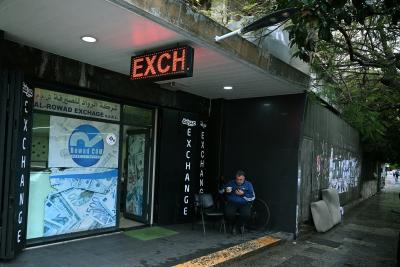After the "industrial globalization" that largely benefited China by shifting numerous jobs from Europe to Asia, are we witnessing a shift in savings as well? Are we on the path to a "financial globalization" favoring the tech giants like GAFAM (Google, Apple, Facebook, Amazon, and Microsoft)? Philippe Crevel, the Director of Cercle de l’Epargne in Paris, weighs in.
Apple Bank recently introduced a savings account with a 4.15% interest rate in the US. Will we see competition grow in the popular savings sector? Can this product be quickly introduced in other countries?
The banking and insurance market is intricate. Strict regulations are in place to safeguard household savings. Traditionally, customers, either out of caution or conservatism, rarely switch banks or insurers. Over the years, attempts by newcomers to penetrate the market have often ended in failure. Many foreign banks haven't been able to establish a lasting presence, and numerous online operators have folded due to not reaching a critical mass. Currently, Apple Bank in the US offers a savings account with over 4% interest. As of now, there's no announced plan to introduce it in Europe. UK-based company Revolut offers an account yielding over 5%. Denominated in dollars, this investment is susceptible to exchange rate risks. Additionally, this attractive rate is contingent upon subscribing to an "ultra card" priced at 45 euros a month.
Will we see a "globalization of savings" with some GAFAM companies entering the financial world?
Currently, savings management remains a national affair, with major banks and insurance companies that have been household names for decades taking the lead. However, with the rise of the "digital native" generations, shifts are occurring, albeit slowly. These younger individuals tend to be more risk-tolerant than their predecessors. Many have invested in cryptocurrencies, contributing to a younger demographic of shareholders since 2020. They favor online accounts and are more likely to switch banks. There's potential benefit in a Europeanized savings system to pool risks and improve returns for savers by democratizing access to specific products like non-listed assets.
Why have the French, among other populations, shifted funds from their current accounts to savings accounts? What does this indicate about consumption patterns?
The increase in interest rates for the Livret A and LDDS, combined with inflation, prompted households to invest accumulated liquid assets, which had been sitting in their current accounts for years. According to the Bank of France, by September 2022, individual demand deposits reached an unprecedented 542 billion euros, up from 406 billion euros in December 2019. Since the previous September, this amount has decreased by 40 billion euros, a significant portion of which went into regulated savings. When the Livret A interest rate was at 0.5%, savers preferred keeping their money in current accounts. With rising inflation, they've sought to protect their liquid assets. This shift signifies a stabilization or even a reduction in consumption.
The 3% interest rate for Livret A in France seems insufficient given the current inflation rate, which diminishes the saved capital. Do you think it should have been increased more than anticipated?
The 3% rate for the Livret A doesn't cover the recent inflation rates exceeding 5%. Only the Livret d’Epargne Populaire currently offers a positive real return, but it's available only to a segment of the population (those with an annual taxable income below 21,393 euros for single individuals). Nevertheless, the 3% rates for both Livret A and the Livret de Développement Durable et Solidaire are still appealing. The Livret A also provides significant security, with capital guaranteed by the state and total liquidity, allowing savers to deposit or withdraw at will. Moreover, it's exempt from any fiscal or social deductions. The French have always been fond of this product, accepting its modest return for years. The only constraints of the Livret A and LDDS are their caps (currently 22,950 euros for Livret A and 12,000 euros for the LDDS). At 3%, the Livret A has few competitors offering both security and liquidity. Bank savings books generally offer lower returns and are taxed. Fixed deposits and term contracts have similar yields but are taxed and not fully liquid. An increase in the yield rate beyond 3% would have intensified the appeal of the Livret A, disadvantaging long-term investments like life insurance's euro funds. This rate hike would have had multiple significant economic impacts. It would have increased the financing cost for social housing, which relies on the Livret A's collection, and would have also raised borrowing costs for local communities and SMEs.
Lastly, by encouraging households to save more, an increased Livret A rate would have curtailed consumption, which was not the government's intent.
Please post your comments on:
[email protected]
 Politics
Politics








